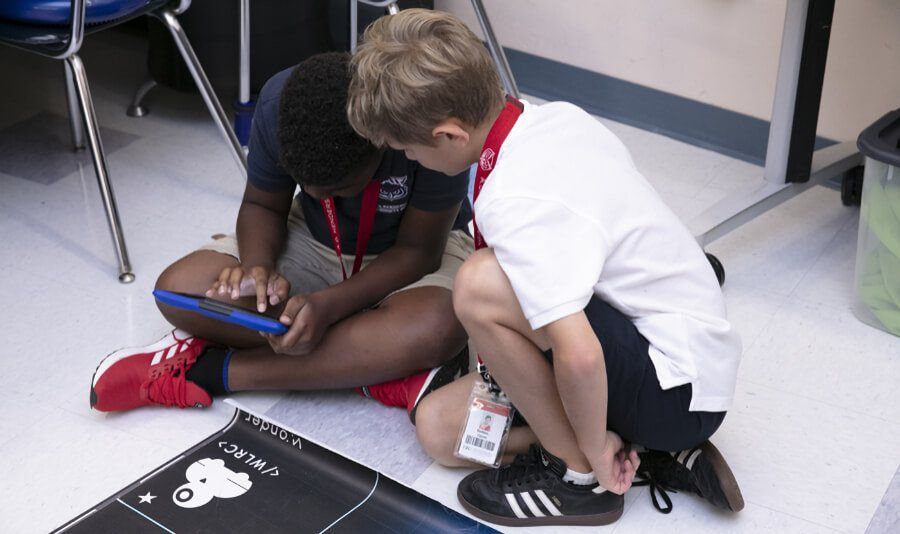Author: University of Oregon
Published: 12th Nov 2014 - Updated: 25th Oct 2022
Peer-Reviewed Publication: Yes
Additional References: Sexual Bullying Publications
Summary: Researchers found people who experienced institutional betrayal suffered post-trauma the most, including anxiety and dissociation.
A study of 345 female university students found that 233 of them had experienced at least one unwanted sexual experience in their lifetime, and 46 percent of those victims also experienced betrayal by the institution where incidents occurred. In the final analysis, researchers found, those who experienced institutional betrayal suffered the most in four post-trauma measurement categories, including anxiety and dissociation.
The study by the University of Oregon's doctoral student Carly Parnitzke Smith and Jennifer J. Freyd, professor of psychology, introduces a 10-item analysis tool - the Institutional Betrayal Questionnaire - designed to assess institutional betrayal and involvement. The study appears in the Journal of Traumatic Stress and comes in the same month that "Blind to Betrayal," a new book co-authored by Freyd and UO psychologist Pamela Birrell, was published.
"Our work on institutional betrayal has coincided with increased public awareness of the harm inflicted by unresponsive institutions surrounding traumatic events," Freyd said. "In describing the form and effects of this type of betrayal, we hope to eventually turn the dialogue towards opportunities for institutions to protect and nurture their members."
The study, Freyd said, takes the focus beyond the usual research on emotional, physical and sexual abuse in one-on-one situations to include the idea that victimization within institutions - a university, including residence halls, fraternities and sororities, the military and organized religion - that individuals trust adds a layer of trauma through the betrayal. Because the study surveyed the participants' lifetime, not all of the incidents occurred while at college, and many were no longer affiliated with the specific institutions where the betrayals occurred.
"Our results suggest that organizations need to widen the scope of their institutional actions and policies to both prevent and respond to sexual assaults," Freyd said. "This is a national problem. The findings at this one university reach well beyond it, and, we believe, are consistent with what would be found at universities across the country."
Originally, the study pool included 514 male and female students, who were unaware of the project's topic. The subject matter was disguised to avoid students' self-selecting into the research. Only experiences of the women, whose average age was 19.67, were included in the analysis.
The unwanted sexual experiences noted in the study were drawn from a 12-point scale in which higher scores involved verbal, physical and alcohol/drug coercion. Also included were unwanted sexual experiences without overt coercion but that involved sexual partners whose insistence or arousal led to the women feeling unable to prevent intercourse. On average, women reported three instances of unwanted sexual experiences.
An institution's role in such abuse if often indirect and occurs around individual acts of sexual violence, the authors wrote. It is within these large institutions where individuals expect to be safe.
The Institutional Betrayal Questionnaire created by Smith and Freyd surveys situations within organizational settings:
Victims responded to each item using a seven-point scale. The tool measure a participant's experience rather than underlying traits.
The experiences of institutional betrayal did not differ significantly across the types of unwanted sexual involvement, supporting the notion that institutional betrayal is an independent construct rather than an indicator of the perceived severity of an experience, the authors wrote in their conclusion.
Those reporting a sense of institutional betrayal were found to have more severe post-traumatic symptoms of sexual abuse trauma, anxiety, sexual dysfunction and dissociation.
Post-trauma Effects of Unwanted Sexual Activity | University of Oregon. SexualDiversity.org makes no warranties or representations in connection therewith. Content may have been edited for style, clarity or length.
Post to Twitter Add to Facebook
| Latest Sexual Bullying Publications | |
|---|---|
The above information is from our reference library of resources relating to Sexual Bullying that includes: | |
 | Greater Adolescent Empathy Helps Prevent Bias-Based Cyberbullying Florida Atlantic University study first to explore empathy types in early U.S. adolescents and the relationship to online bullying. Publish Date: 8th Aug 2022 - Updated: 5th Jan 2023 |
 | Romantic Relationships Buffer Gay and Lesbian Youth from Emotional Distress Lesbian and gay youth showed significantly less psychological distress and were buffered against the negative effects of bullying and victimization when they were in a relationship. Publish Date: 15th Feb 2018 |
 | Opinion: Sexual Harassment: Doing Nothing Not an Option While the current discussions of sexual harassment have raised awareness for many, it will be meaningless unless it results in a change of behavior. Publish Date: 21st Dec 2017 |
 | Resilience to Adversity Determines if Children Survive or Thrive When Bullied Article looks at whether there is a major personal characteristic or trait that buffers and protects kids against internalizing the harm intended through bullying and cyberbullying. Publish Date: 15th Oct 2017 |
1Adult Dating: Local Women & Men
Search for local females and males.
2Am I Gay? Questions to Ask
Think you may be gay or bisexual?
3Glossary of Sexuality Terms
Definitions of sexual terms & acronyms.
4LGBTQ+ Pride Flags
Symbols of Identity and Inclusion.
5Adult FriendFinder Dating for Adults
Find like minded people locally.
• Submissions: Send us your coming events and LGBTQ related news stories.
• Report Errors: Please report outdated or inaccurate information to us.
• (APA): University of Oregon. (2014, November 12). Post-trauma Effects of Unwanted Sexual Activity. SexualDiversity.org. Retrieved February 3, 2026 from www.sexualdiversity.org/discrimination/bullying/177.php
• Permalink: <a href="https://www.sexualdiversity.org/discrimination/bullying/177.php">Post-trauma Effects of Unwanted Sexual Activity</a>